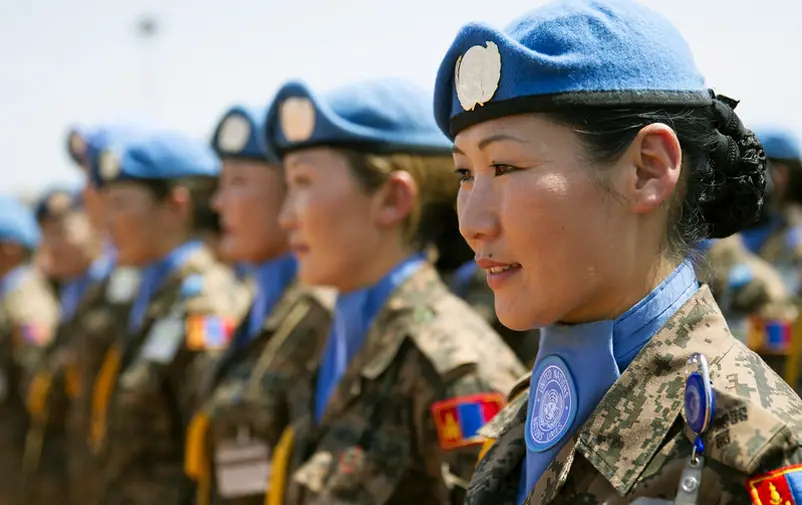
Photo: UN Photo/Martine Perret
This paper discusses the interlinkages between Security Sector Reform (SSR), elections, and gender equality. It uses FBA’s work in Somalia to show how gender-sensitive election security can serve as an entry point for working with inclusive SSR in an environment characterized by instability, conflict, and political unrest.
It argues that election security in many ways serves as an opportunity to address multiple issues simultaneously, such as coordination and cooperation within the security sector, dialogue with civil society, and the enhancement of gender equality - sometimes in absence of a formalized SSR process.
There is a broad perception that legitimate elections require an
accountable and effective security sector, given that well-conducted
security is vital for the legitimacy and realization of the overall election
process; from voter registration to voter turnout, to securing election
sites, and protecting political candidates. This is especially the case
in post-conflict contexts. Elections are intrinsically conflictual events
that may cause a heightened period of insecurity in any given context,
however, in post-conflict environments the threshold of using violence
tends to be lower, and the capacity of the security sector may be limited.
Gender equality is recognized by numerous international agreements and
treaties as a crucial component of peaceful and democratic societies.1
Integrating a gender perspective in election security is vital to promote
equal participation of men and women, as insecurity impacts women
and men differently. This requires a systematic analysis of the needs
and priorities of diverse groups of women and men, as well as ensuring
that this analysis informs all stages and aspects of security planning.
Failing to integrate a gender perspective, will risk the broad participation
of men and women - as candidates, voters, election management staff,
media workers and civil society representatives, and in turn, the overall
legitimacy of the election.
MORE FROM HOME
What does research tell us about strategic civil-military leadership in UN integrated missions? The recent FBA research brief "Mission Leaders: An Evidence-based Assessment” presents seven policy recommendations.
2025-07-01 13:34FBA has both increased and adapted its work in Ukraine in the wake of Russia's invasion.
FBA in UkraineKlara Grenhagen works as a specialist at FBA's Africa unit with a focus on dialogue, reconciliation and peace processes.
More about our expertsFBA is part of Sweden’s development aid within the area of peace and security
Read more about the countries where we work